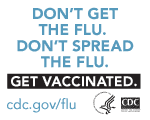CDC Features
CDC Addresses the HIV/AIDS Epidemic among African Americans

National Black HIV/AIDS Awareness Day (NBHAAD), February 7, is coordinated annually by seven leading African-American community organizations in partnership with CDC. NBHAAD activities are centered on motivating individuals to get tested and to know their HIV status, and on educating the entire community about the importance of HIV prevention, early detection, and treatment.
This important day serves to remind us all that the HIV epidemic remains a crisis for African Americans. In this community, males continue to bear the greatest burden of HIV in the U.S. In 2005, the rate of HIV diagnosis among black men was nearly seven times higher than that of white men, with black gay and bisexual men representing more than half of all diagnoses. African American women are also severely affected with an HIV diagnosis rate in 2005 more than 20 times that of white women.
National Black HIV/AIDS Awareness Day is an opportunity to speak out about the toll of HIV and take action to stop its spread. At events across the nation, CDC and African American leaders from all walks of life, including business, civil rights, entertainment, government, and media – are speaking out and taking action. African Americans are encouraged to ACT – through increased Awareness, Communication, and Testing – against the HIV crisis in the black community.
At CDC, aggressively confronting the HIV epidemic among African Americans is a high HIV/AIDS prevention priority. This reflects a major financial commitment. In fact, CDC estimates that in 2007, more than half of CDC’s domestic HIV prevention budget – approximately $300 million – was spent on addressing HIV in the African American community. There have been hopeful signs of progress in recent years, from dramatic reductions in the number of babies born with HIV to evidence of reductions in new HIV infections among African American women.
But much remains to be done. CDC is working with African American leaders from every sector, and with our public health partners, on a Heightened National Response to HIV crisis in the black community. With these partners, CDC is intensifying HIV prevention efforts on four fronts: expanding the reach of comprehensive prevention programs, including abstinence education, risk reduction training, and proven behavioral interventions; increasing opportunities for HIV testing and treatment; developing new, effective prevention strategies; and mobilizing broader community action. CDC is also committed to tackling the cultural and socioeconomic challenges that place African Americans at risk, from poverty, stigma and racism to lack of access to testing and healthcare.
HIV awareness and testing events will provide thousands of African Americans with the important information they need to protect their health, protect their loved ones, and get involved. Collective action by everyone affected or infected by HIV is one of our most powerful weapons against this epidemic. Start today by calling 1-800-CDC-INFO or visiting www.hivtest.org to locate an HIV testing site near you.
For More Information

CDC Web Topic: HIV/AIDS and African Americans
Learn about the impact of HIV/AIDS in African American communities.

CDC Fact Sheet: HIV/AIDS among African Americans
AIDS has become a leading cause of death for African Americans.

Webcast: Mobilizing against the HIV/AIDS Crisis among African Americans
This Webcast raises awareness about the impact of HIV/AIDS on African Americans.

National HIV Testing Database
Find an HIV test site near you from the National HIV Testing Database, a CDC-sponsored service available 24 hours a day.

Race/Ethnicity of Persons (Including Children) with HIV/AIDS Diagnosed During 2005
CDC Featured Data & Stats, National Black HIV/AIDS Awareness Day 2008
Page last updated: February 7, 2008
Content source: National Center for HIV/AIDS, Viral Hepatitis, STD, and TB Prevention
Content owner: National Center for Health Marketing
URL for this page: www.cdc.gov/Features/BlackHIVAIDSAwareness/


